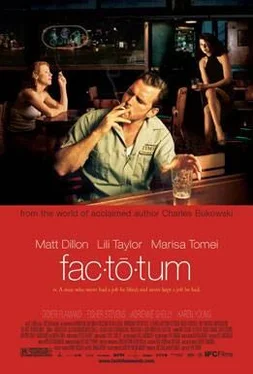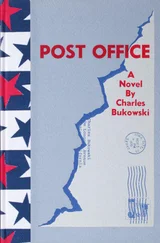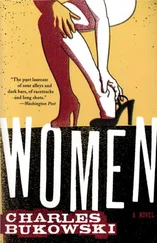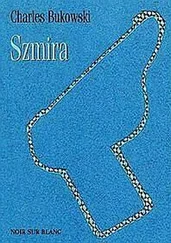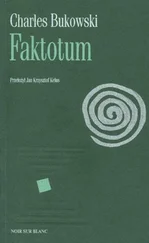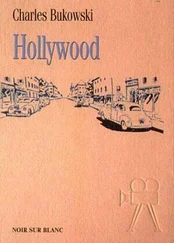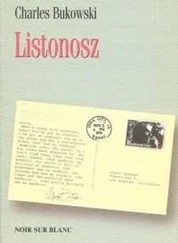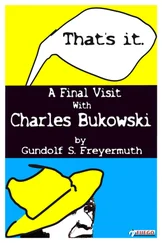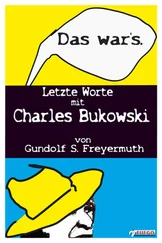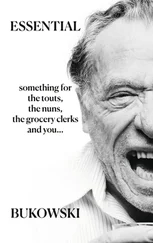Charles Bukowski - Factotum
Здесь есть возможность читать онлайн «Charles Bukowski - Factotum» весь текст электронной книги совершенно бесплатно (целиком полную версию без сокращений). В некоторых случаях можно слушать аудио, скачать через торрент в формате fb2 и присутствует краткое содержание. Жанр: Современная проза, на английском языке. Описание произведения, (предисловие) а так же отзывы посетителей доступны на портале библиотеки ЛибКат.
- Название:Factotum
- Автор:
- Жанр:
- Год:неизвестен
- ISBN:нет данных
- Рейтинг книги:4 / 5. Голосов: 2
-
Избранное:Добавить в избранное
- Отзывы:
-
Ваша оценка:
- 80
- 1
- 2
- 3
- 4
- 5
Factotum: краткое содержание, описание и аннотация
Предлагаем к чтению аннотацию, описание, краткое содержание или предисловие (зависит от того, что написал сам автор книги «Factotum»). Если вы не нашли необходимую информацию о книге — напишите в комментариях, мы постараемся отыскать её.
Factotum — читать онлайн бесплатно полную книгу (весь текст) целиком
Ниже представлен текст книги, разбитый по страницам. Система сохранения места последней прочитанной страницы, позволяет с удобством читать онлайн бесплатно книгу «Factotum», без необходимости каждый раз заново искать на чём Вы остановились. Поставьте закладку, и сможете в любой момент перейти на страницу, на которой закончили чтение.
Интервал:
Закладка:
Handler picked up the phone. "Miss Simms. There's a check due a Mr. Henry Chinaski. I want it here within five minutes. Thank you." He hung up.
"Listen, John," I said, "I've had two years of journalism, L.A. City College. You couldn't use a reporter, could you?"
"Sorry, we're overstaffed now."
We chatted and after a few minutes a girl came in and handed John the check. He reached across the desk and handed it to me. A decent guy. I heard later that he died soon after that, but Jan and I got our beef stew and our vegetables and our French wine and we went on living.
68
I took the card they gave me at the State Department of Employment and walked over to the job interview. It was a few blocks east of Main Street and a little north of the skid row district. It was a company dealing with automobile brake parts. I showed them the card in the office and I filled out an application form. I lengthened my tenure at the jobs I had previously had, turning days into months and months into years. Most firms never bothered to check references. With those firms required to bond their employees, I didn't stand much chance. It would quickly appear that I had a police record. The brake supply house made no mention of a bond. Another problem after you had been on the job two or three weeks, most employers tried to get you to join their insurance plan, but by then I was usually gone.
The man glanced at my application and then turned humorously to the two women in the room: "This guy wants a job. Do you think he'll be able to stand us?"
Some jobs were amazingly easy to get. I remember one place I walked in, slouched down in a chair, and yawned. The guy behind the desk asked me: "Yes, what do you want?" "Oh hell," I answered, "I guess I need a job." "You're hired."
Some other jobs, however, were impossible for me to get. The Southern California Gas Company had ads in the help wanted section that promised high wages, early retirement, etc. I don't know how many times I went there and filled out their yellow application forms, how many times I sat on those hard chairs looking at large framed photos of pipes and gas storage tanks. I never came close to being hired and whenever I saw a gas man I would look at him very closely; trying to figure out what he had that I obviously didn't have.
The brake parts man took me up a narrow stairway. George Henley was his name: George showed me my workroom, very small, dark, just one lightbulb and one tiny window that looked out over an alley.
"Now," he said, "you see these cartons. You put the brake shoes into the cartons. Like this."
Mr. Henley showed me.
"We have three types of cartons, each printed differently. One carton is for our 'Super Durable Brake Shoe.' The other is for our 'Super Brake Shoe.' And the third is for our 'Standard Brake Shoe.' The brake shoes are stacked right here.
"But they all look alike to me. How can I tell them apart?"
"You don't. They're all the same. Just divide them into thirds. And when you finish packing all these shoes, come on downstairs and we'll find something else for you to do. O.K.?"
"O.K. When do I start?"
"You start now. And, absolutely no smoking. Not up here. If you have to smoke, you come on downstairs, O.K.?"
"O.K."
Mr. Henley closed the door. I heard him go down the stairs. I opened the little window and looked out at the world. Then I sat down, relaxed, and smoked a cigarette.
69
I quickly lost that job, just as I lost many others. But I didn't care-with one exception. It was the easiest job I ever had and I hated to see it go. It was during World War II. I was working for the Red Cross in San Francisco, driving a truck full of nurses and bottles and refrigerators around to various small towns. We collected blood for the war effort. I unloaded the trucks for the nurses when we arrived and then I had the rest of the day to walk around, sleep in the park, whatever. At the end of the day the nurses stuck the full bottles into the freezers and I squeezed blood clots out of the rubber tubes in the nearest crapper. I was usually sober but I pretended the blood clots were tiny fish or pretty little bugs which kept my lunch down.
The Red Cross job was a good one. I even had a date lined up with one of the nurses. But one morning I took the wrong bridge out of town and got lost in a skid row section somewhere with a truck full of nurses and needles and empty bottles. Those skid row guys were aching to rape the lot of us, and some of the nurses got nervous. It was back over the bridge for us and around some other way. I'd gotten my towns mixed up, and when we finally got to the church where the blood donors were waiting we were over two hours and fifteen minutes late. The front lawn was filled with angry donors and doctors and church officials. Across the Atlantic, Hitler was gaining with every step. I lost that job right then and there, unfortunately.
70
The Yellow Cab Company in L.A. is located on the south side of Third Street. Rows and rows of yellow cabs sit in the sun in the yards. It is near the American Cancer Society. I had visited the American Cancer Society earlier, as I had understood it to be free. I had lumps all over my body, dizzy spells, I was spitting blood, and I had gone there only to be given an appointment for three weeks later. Now like every American boy I had always been told: _catch cancer early_. Then you go down to catch it early and they make you wait three weeks for an appointment. That's the difference between what we're told and actuality.
After three weeks I went back and they told me they could give me certain tests free, but that I could pass these tests and wouldn't really be sure that I didn't have cancer. However, if I gave them $25 and passed that test, I could be _fairly_ sure I didn't have cancer. To be _absolutely_ sure, after I had taken the $25 test, I would have to take the $75 test, and if I passed that one too, I could relax. It would mean my trouble was alcoholism or nerves or the clap. They talk real good and clear, those kittens in the white coats at the American Cancer Society, and I said, in other words, $100. Umm hum, they said, and I walked out and went on a three day toot and all the lumps vanished along with the dizzy spells and the blood spitting.
When I went to the Yellow Cab Company I passed the Cancer Building and I remembered that there were worse things than looking for a job you didn't want. I went in and it seemed easy enough, the same old forms, questions, etc. The only new thing was fingerprints but I knew how to be fingerprinted and I relaxed the hand and fingers and pressed them in the ink and the girl complimented me on my expertise. Mr. Yellow said to come back the next day to training class, and Jan and I celebrated that night.
71
Janeway Smithson was a little, insane, gray-haired bantam rooster of a man. He loaded five or six of us in one cab, and we rolled down to the bed of the L.A. River. Now in those days the L.A. River was a fake-there was no water, just a wide, flat, dry cement runway. The bums lived down there by the hundreds in little cement alcoves under the bridges and overpasses. Some of them even had potted plants in front of their places. All they needed to live like kings was canned heat (Sterno) and what they picked out of the nearby garbage dump. They were tan and relaxed and most of them looked a hell of a lot healthier than the average Los Angeles business man. Those guys down there had no problems with women, income tax, landlords, burial expenses, dentists, time payments, car repairs, or with climbing into a voting booth and pulling the curtain closed.
Janeway Smithson had been on the job for twenty-five years and was dumb enough to be proud of it. He carried a pistol in his right hip pocket and bragged that he had stopped a yellow cab in less time and fewer feet while taking the Brake Test than any other man in the history of the Yellow Cab Company. Looking at Janeway Smithson it occurred to me that this was either a lie or had been half-assed luck, and that Smithson, like any other twenty-five-year-man, was totally insane.
Читать дальшеИнтервал:
Закладка:
Похожие книги на «Factotum»
Представляем Вашему вниманию похожие книги на «Factotum» списком для выбора. Мы отобрали схожую по названию и смыслу литературу в надежде предоставить читателям больше вариантов отыскать новые, интересные, ещё непрочитанные произведения.
Обсуждение, отзывы о книге «Factotum» и просто собственные мнения читателей. Оставьте ваши комментарии, напишите, что Вы думаете о произведении, его смысле или главных героях. Укажите что конкретно понравилось, а что нет, и почему Вы так считаете.
